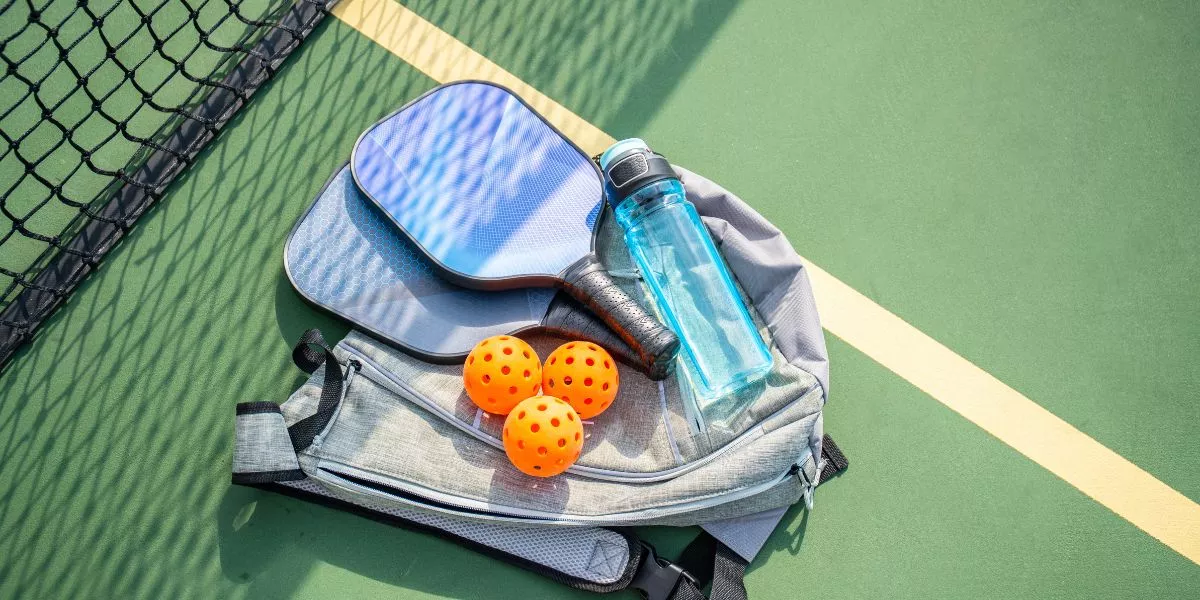
To care for your pickleball equipment and extend its lifespan, you must pay attention to a few key maintenance practices. By following simple steps like cleaning your paddles after each use and storing them correctly, you can significantly prolong their durability. However, there are other crucial aspects to consider when it comes to maintaining your gear that could make a substantial difference in how long your equipment lasts. Remember, taking care of your pickleball equipment is not just about cleanliness; it's about ensuring optimal performance and longevity.
Cleaning and Storing Paddles
When caring for your pickleball equipment, regularly wipe down your paddles with a damp cloth after each use to remove dirt and sweat buildup. This simple step helps maintain the quality of your paddles and ensures they perform optimally during gameplay. Make sure to pay attention to both the paddle face and the edges to prevent any debris from affecting your shots.
After cleaning your paddles, store them properly to prevent damage. Avoid leaving them in extreme temperatures or direct sunlight for prolonged periods as this can warp the materials. It's best to keep your paddles in a protective case or cover when not in use to shield them from dust and potential impacts.
Maintaining Ball Quality
Regularly inspecting your pickleball balls for signs of wear and replacing them when necessary is crucial for maintaining ball quality. Over time, pickleball balls can become scuffed, cracked, or dented, affecting their bounce and playability. Inspecting them before each game ensures you're using balls that meet the standards of the sport.
When storing your pickleball balls, keep them in a cool, dry place away from direct sunlight and extreme temperatures. Exposure to heat can cause the balls to expand, altering their shape and performance. Additionally, moisture can seep into the balls, making them heavier and less responsive on the court.
To prolong the lifespan of your pickleball balls, avoid using them on rough surfaces that can quickly wear them down. Opt for playing on indoor courts or smooth outdoor surfaces to maintain the integrity of the balls. By taking these simple steps to care for your pickleball balls, you'll enjoy consistent performance and extend their usability.
Inspecting and Repairing Nets
To ensure optimal performance and safety during pickleball games, regularly inspecting and promptly repairing any damage to the nets is essential. Start by checking the net for tears, holes, or loose stitching. These issues can affect the integrity of the net and potentially cause injuries during gameplay. If you notice any damage, it's crucial to address it immediately to prevent further deterioration.
When repairing the net, use sturdy materials that can withstand the intensity of pickleball gameplay. Reinforce any weak spots with additional stitching or patches to ensure durability. Make sure to test the repaired areas before playing to confirm that the net is secure and stable.
Regular maintenance of the nets not only extends their lifespan but also enhances the overall playing experience. By keeping the nets in good condition, you can enjoy competitive games without worrying about equipment failures. Remember, a well-maintained net contributes to a safer and more enjoyable pickleball environment for all players.
Proper Equipment Storage
Ensure your pickleball equipment is stored properly to maintain its quality and prolong its lifespan. Proper equipment storage is essential in preventing damage and extending the longevity of your gear.
When storing your pickleball paddles, it's best to keep them in a cool, dry place away from direct sunlight and extreme temperatures. Avoid leaving them in your car for extended periods as heat can warp the paddle's shape. Store your paddles in a protective case or cover to shield them from dust and scratches.
For pickleballs, store them in a container that allows for ventilation to prevent moisture build-up, which can affect the ball's performance. Keep them away from damp areas to avoid mold growth.
Nets should be stored indoors when not in use to protect them from weather elements that can cause deterioration. Additionally, make sure to fold the net properly to prevent any creases or tears in the material.




